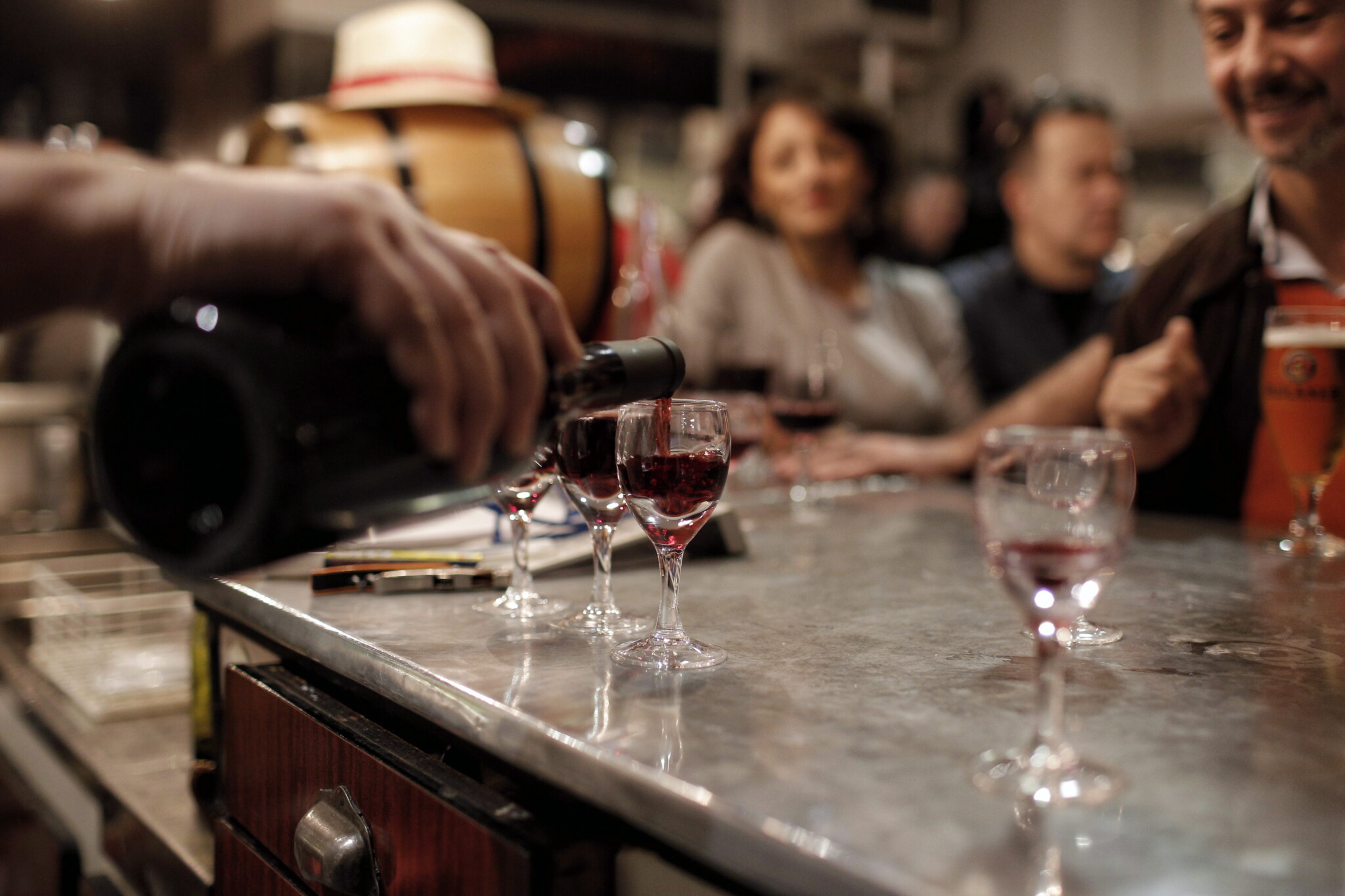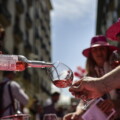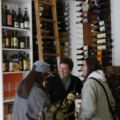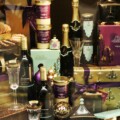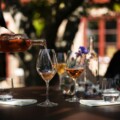The wine trade works on the principle that wine cannot be sold if it has not been tasted. Exactly who does the tasting, when and where, is another matter. But even the most sought-after labels, the wines Whitnail calls “The finest wines available to humanity,” have to be tasted before coming to market.
However it’s done, from a barrel in a cellar or at a row of tables in a hotel ballroom, tasting wine is a peculiar business. Tasting wine is a test. I feel for the winemakers and their representatives. Every pour is a small trial and the basis for a judgement. Do we like this wine or not? If so, how much and why?
It’s worse for winemakers than just the judgement of the critics or the public. They do it to themselves. Constantly. In a recent interview with the podcast The Wine Conversation, Philippe Guigal of Domaine E. Guigal tells British journalist Sarah Kemp that he and his father, Marcel, spend an hour and a half every day, including weekends, tasting over lunch.
Guigal tells Kemp, earlier in the interview, that as a boy the Guigal family’s dining room table doubled as the place where guests tasted wine. Now the family’s estates, across the Rhône, have tasting rooms to host, as well as a secret room where father, son, and colleagues taste daily.
The best tasting room of all might not be one at all. When I was in Alsace in October, Séverine Schlumberger took me and two colleagues in her old Land Rover Defender straight up a single-track dirt track to taste wine high on the hillside overlooking the Schlumberger winery and the medieval town of Guebwiller.
We tasted the 2015 Schlumberger Kitterlé Grand Cru Gewürztraminer at 400 metres above sea level on volcanic soil. We overlooked the flood plains of the Rhine River in the distance and the Black Forest Mountains in Germany beyond it. It’s hard enough to hold a wine glass and a notebook in one hand while scrawling tasting notes. I can do it, but the view was too distracting and my notes are brief and hard to read. Something about roses, herbs, and almonds—also very delicious.
You don’t need a Land Rover to see the vineyards at Zind-Humbrecht, just outside the Alsatian wine hub of Colmar. The tasting room, in the working winery built in the 1990s, looks a bit like the lair of a James Bond villain. The round room is nearly completely encircled with windows that look out on the Vosges Mountains to the southwest, west, and northwest.
The tasting we had there with Olivier Humbrecht, whose family can trace their Alsatian winemaking back to 1620. We may have reversed the dynamic of judgement that afternoon.
We had spent the morning tasting through forty wines at the Maison des Vins d’Alsace, who were our hosts and organized the press trip. We meant to get a coffee on our way to Zind-Humbrecht to combat the post-prandial yawns. The winery was closer than we thought, and we never passed an opportunity to stop.
September rains meant that the harvest was delayed, and we had arrived in the country right in the middle of it. When we were sat in the tasting room with the panoramic view, we were told Olivier Humbrecht would be delayed as an issue had come up that needed to be attended to. The revenue from an entire year depends on the crop, and we understood that harvest always takes precedence in the world of wine.
A winery is a farm, a factory, a warehouse, but also an office. Offices always have coffee, especially in Europe. We asked if we could have a coffee while we waited and, of course, three coffees arrived just at the moment Humbrecht arrived to commence a tasting of some of Alsace’s fancier wines.
I’m not sure which was the biggest insult. Taking a palate-destroying espresso right before a tasting, or using up precious minutes of time during harvest to do it. In any event, Humbrecht is a generous and forgiving man, and he let us down our coffees and poured us an extra glass of the 2022 Riesling Roche Granatique to rinse out our mouths. Mineral, bone dry with citrus notes, this organic wine made for the best mouthwash I have tasted.
The best tasting room might also be a restaurant. Our last night in Alsace was in the city of Strasbourg, the region’s capital and home to the European Parliament. There we went to the famous “winstub” or wine bar Saint Sépulchre to meet with vigneron Mélanie Pfister, whose family’s winery shares her name: Domaine Mélanie Pfister.
The food at Saint Sépulchre is old-school Alsatian, and on a Thursday night it was packed. All I heard walking in was French, so if there were any other tourists in the crowd, we were outnumbered. We found Mélanie at the back of the wood-panelled room where she greeted us with a glass of her Crémant Breit, a crisp but fully rounded sparkling wine made from Chardonnay, Pinot Blanc, and Pinot Auxerrois all sourced from a single vineyard.
We ordered traditional Alsatian dishes like onion tart, choucroute garni, and pork shanks roasted in honey and beer. Not only was the food delicious and comforting, but it proved to be the perfect juxtaposition to Pfister’s modern Alsatian wines, including her 2022 Pinot Noir Weg, from a single vineyard planted by her father in 1980.
Tasting while dining is also drinking while dining; no one is in the mood to spit at 9 pm. Reports can be dubious, which is why most important tastings happen in the sober hours of the day. But, sharing a meal is an intimate exercise so I’d like to think we got to know the wines and their maker a little bit better than in a formal setting.
Tasting while eating, from the perspective of the pourer may also be a more reliable gauge of how the wines are being received. Enthusiasm for the products may be measured by how frequently a particular glass is returned to. Pfister’s white wine, the 2022 Mel, a combination of Alsace’s four “noble grapes” Riesling, Gewurztraminer, Muscat, and Pinot Gris, fit that bill.
Tasting while dining also brings wine to its natural habitat, the table. It must be the best way to sell it because nothing tastes as good as good food and company.
